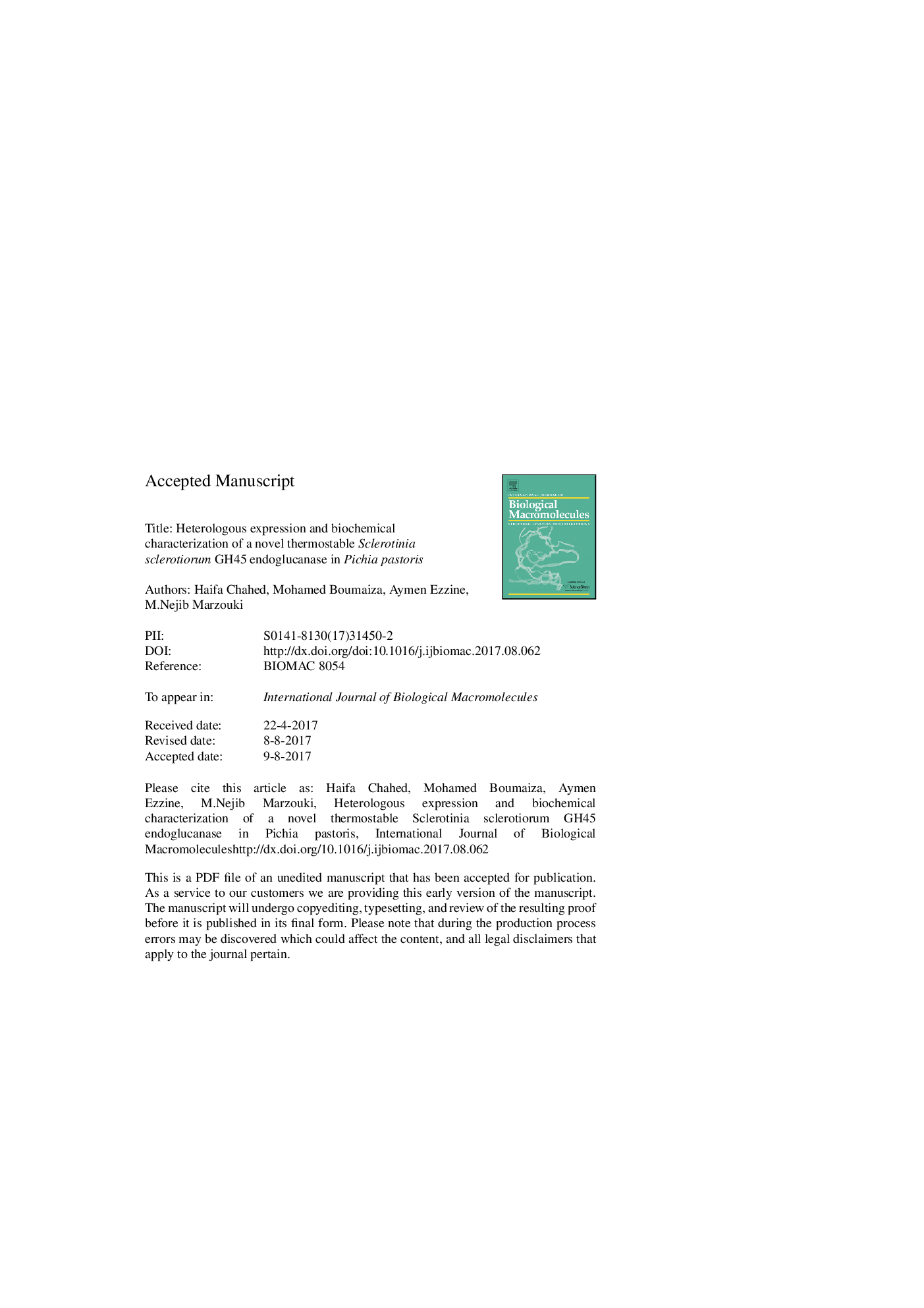| Article ID | Journal | Published Year | Pages | File Type |
|---|---|---|---|---|
| 8329218 | International Journal of Biological Macromolecules | 2018 | 25 Pages |
Abstract
In the present study, Pichia pastoris was used as a host for the heterologous expression of a Sclerotinia sclerotiorum GH45 endoglucanase, Endo2. The recombinant plasmid pPICZαA was used to transform Pichia pastoris. Pichia culture supernatants expressing the recombinant Endo2 (rEndo2) were used for the purification and biochemical characterization of this enzyme. Therefore, rEndo2 was purified 6.7 fold to homogeneity with 34% yield and gave 19 U/mg specific activity. It also showed maximum activity at pH 7.0 and 60 °C (against pH 5.0 and 50 °C for the native enzyme) and was thermostable at relatively high temperatures. Furthermore, rEndo2 retained its activity in a wide pH range (from 5 to 8). Besides, the recombinant endoglucanase was produced as an active 47 kDa enzyme. This molecular weight differs from the one of the native enzyme (34 kDa), which suggested a potential glycosylation of the recombinant enzyme. Moreover, rEndo2 was able to produce fermentable sugars after enzymatic assay on various cellulosic substrates with an interesting yield. Therefore, all these features offer prospects for large-scale production and industrial application of the recombinant endoglucanase.
Keywords
Related Topics
Life Sciences
Biochemistry, Genetics and Molecular Biology
Biochemistry
Authors
Haifa Chahed, Mohamed Boumaiza, Aymen Ezzine, M.Nejib Marzouki,
